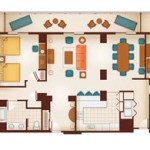Small Wood Stove for Bedroom
A small wood stove can be a great addition to any bedroom, providing warmth and ambiance on cold nights. However, it is important to choose the right stove for your needs and to install it properly to ensure safety.
Choosing a Small Wood Stove
When choosing a small wood stove for your bedroom, there are several factors to consider, including the size of your room, the type of fuel you will be using, and the features you want.
Size: The size of the stove will depend on the size of your bedroom. A small stove is typically around 1 cubic foot in size, while a large stove can be up to 3 cubic feet in size. Choose a stove that is large enough to heat your room without overheating it.
Fuel type: Wood stoves can burn a variety of fuels, including wood, pellets, and coal. Wood is the most common fuel for wood stoves, but pellets and coal are also good options. Choose a fuel that is readily available in your area and that you are comfortable using.
Features: Wood stoves come with a variety of features, including blowers, thermostats, and ash pans. Blowers help to circulate the heat from the stove, while thermostats help to regulate the temperature. Ash pans make it easy to remove ashes from the stove.
Installing a Small Wood Stove
Once you have chosen a small wood stove for your bedroom, you will need to install it properly. This is a job that is best left to a qualified professional, as improper installation can lead to safety hazards.
The first step in installing a wood stove is to choose a location for the stove. The stove should be placed in a central location in the room, away from any flammable materials. The stove should also be placed on a non-combustible surface, such as a concrete slab or a tile floor.
Once you have chosen a location for the stove, you will need to install a chimney or flue. The chimney or flue must be properly sized and installed to ensure that the stove operates safely.
Once the chimney or flue is installed, you will need to connect the stove to the chimney or flue. This is typically done using a stovepipe.
Once the stove is connected to the chimney or flue, you will need to test the stove to make sure that it is operating safely. This can be done by burning a small fire in the stove and checking for any leaks or other problems.
Using a Small Wood Stove
Once you have installed your small wood stove, you will need to learn how to use it properly. This includes learning how to build a fire, how to control the temperature, and how to clean the stove.
To build a fire in a wood stove, start by placing a small amount of tinder, such as newspaper or kindling, in the bottom of the stove. Then, add a few small logs on top of the tinder. Light the tinder and allow the fire to burn for a few minutes. Once the fire is burning well, you can add larger logs to the stove.
To control the temperature of a wood stove, use the air intake controls. The air intake controls are typically located on the front or side of the stove. Opening the air intake controls will allow more air to enter the stove, which will cause the fire to burn hotter. Closing the air intake controls will reduce the amount of air entering the stove, which will cause the fire to burn cooler.
To clean a wood stove, remove the ashes from the stove using an ash pan. Then, use a brush or vacuum cleaner to clean the inside of the stove. Be sure to clean the stove regularly to prevent the buildup of creosote, which can cause chimney fires.

Tiny Salamander Stove

Wood Burning Stove Buying Guide Direct Stoves

20 Beautiful Fireplaces For A Small Living Space

Crystal 5 Cast Iron Tiny Wood Stove

Tiny Wood Stove Stoves For Mobile Spaces

A Compact Wood Burning Stove Warms An Studio

How To Get Heat From Wood Stove Other Rooms Charnwood

Small Stoves For Cabins And Studios Archives Salamander

Wood Burner Ideas 12 Cozy Designs And Expert Installation Tips Homes Gardens

Tiny Salamander Stove








